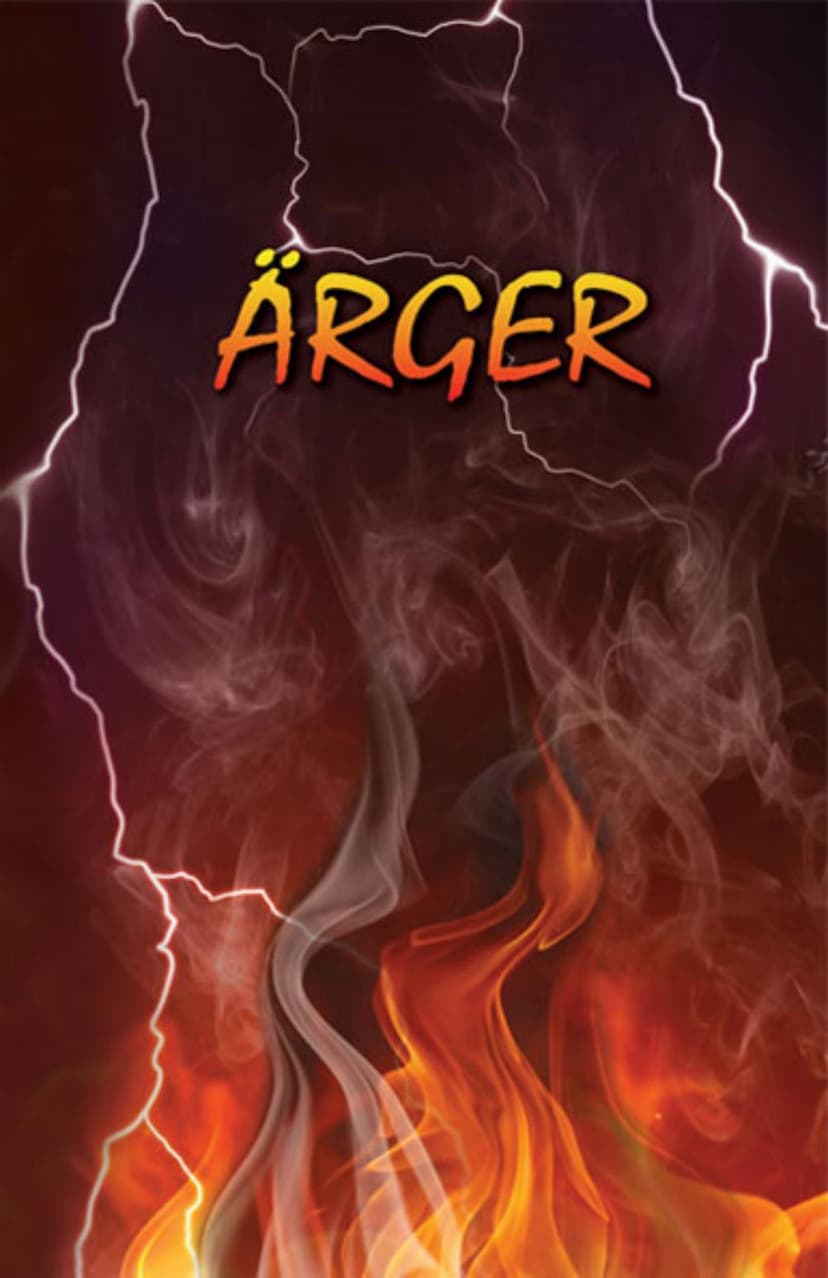Anger
Added to library: September 1, 2025

Summary
This document is the German translation of the book "Anger" by Dada Bhagwan, published by the Dada Bhagwan Aradhana Trust. The book focuses on understanding and overcoming anger from a spiritual perspective, rooted in the Akram Vignan (a step-less path to self-realization) teachings of Dada Bhagwan.
Here's a comprehensive summary of the key points presented in the text:
Introduction to Dada Bhagwan and Akram Vignan:
- Dada Bhagwan: The book introduces Dada Bhagwan (Ambalal Muljibhai Patel) as a Gnani Purush (Self-Realized Being) who experienced spontaneous self-realization in 1958. He identified himself as an instrument of a higher power called Dada Bhagwan, which he said manifested fully within him and exists in everyone.
- Akram Vignan: This refers to Dada Bhagwan's unique spiritual science, which provides a direct and step-less path to self-realization. Through a process called Gnan Vidhi (knowledge ceremony), individuals can attain self-knowledge within two hours.
- Continuity of the Lineage: The teachings and mission are carried forward by Pujya Niruben Amin and currently by Pujya Deepakbhai Desai, who were blessed by Dada Bhagwan with special spiritual powers to impart this knowledge.
Understanding Anger (Ärger):
- Anger as a Weakness, Not Strength: The core message is that anger is a weakness, not a sign of strength. Those who remain calm and unaffected possess greater inner strength.
- Causes of Anger: Anger typically arises when things don't go according to one's expectations, when one feels misunderstood, when views clash with others, or when accused of being wrong while believing oneself to be right. It's also fueled by pride and greed.
- The Illusion of Being Right: When we believe we are right, so does the other person. This mutual conviction of being right is a common trigger for anger.
- Anger as a Loss of Control: Anger signifies a lack of control over one's inner machinery and reactions. It's described as transforming from a human into a beast.
- Anger as Self-Inflicted Harm: Becoming angry is likened to setting oneself on fire and then spreading the flames to others. It destroys one's own accumulated merit and peace, and can have repercussions in future lives.
- Two Forms of Anger:
- Verstimmung (Discontent/Sulking): This is visible to others and can persist for a long time, even a lifetime, creating lasting animosity.
- Rastlosigkeit (Restlessness): This remains internal and unseen by others.
- Krodh (Anger) vs. Gusso (Sulking): Anger (Krodh) is linked to the ego. Sulking (Gusso) without ego involvement (like a father's mild disapproval for his child's well-being) may bind positive karma.
- The Root of Anger: Ego: The ego is identified as the root of anger. When the ego is involved, particularly with the idea of profit and loss or self-importance, anger arises.
- Blindness of Anger: Anger blinds individuals to the underlying causes of their reactions and their own role in situations.
- Karma and Anger:
- Punya (Positive Karma): Anger directed towards children or students for their development, with the intention of their well-being, can bind punya, even if it causes internal turmoil for the parent/teacher.
- Paap (Negative Karma): Anger arising from selfishness binds paap.
- Anger as a Signal: In some cases, anger can act as a "red signal" or warning, necessary for guiding someone towards the right path (e.g., a father's anger preventing a child's misbehavior). However, the intention should not be to harm.
- The Role of "Nimit" (Instrument): Those who cause us anger are merely instruments (Nimits) delivering the results of our past karma. Understanding this helps detach from anger.
- The Danger of Suppression: Suppressing anger is not the solution; it can lead to mental distress and the growth of other weaknesses like pride.
The Solution: Understanding and Self-Realization:
- The Importance of the "Knower": True freedom from weaknesses like anger comes from understanding who the "knower" of these experiences is. This is the Pure Soul (Shuddhatma).
- Akram Vignan as the Solution: The science of Akram Vignan, particularly through the Gnan Vidhi, provides the direct knowledge of the Self, which uproots anger and other negative tendencies.
- Changing Causes, Not Just Results: One cannot simply stop the result (anger); one must address the root cause. This involves changing one's opinions and understanding the karmic underpinnings of situations.
- Pratikraman (Repentance and Seeking Forgiveness): This is a crucial practice. It involves acknowledging one's mistakes, feeling sincere remorse, asking for forgiveness from the Soul within the other person, and making a firm resolution not to repeat the mistake.
- The Power of "Bhaav" (Inner Intention): The inner intention is paramount. A positive intention, even within a seemingly angry situation, can lead to positive results.
- Sheel (Exceptional Moral Character): This is presented as a force even greater than anger. A person with Sheel possesses inner strength and can calm even animals and enemies.
- No Expectations: Having no expectations is key to avoiding situations that trigger anger.
- The Role of the Gnani: Only a Self-Realized Being (Gnani Purush) can impart the true knowledge of the Self, which is the ultimate solution to all weaknesses, including anger.
Key Practices and Concepts:
- Trimantra: The book includes the Trimantra, a powerful mantra that is said to destroy all obstacles in life.
- Satsang: Attending spiritual discourses (Satsang) with a Gnani is essential for gaining true knowledge.
- Alochana: Confessing one's faults to a spiritual guide.
- Pratikraman: The practice of seeking forgiveness internally.
- Nischaya (Resolution): Making a firm resolution not to repeat past mistakes.
- Vyavasthit (Circumstantial Causation): The law that governs how circumstances unfold based on past actions.
In essence, the book "Anger" by Dada Bhagwan, through the lens of Akram Vignan, aims to dismantle the conventional understanding of anger as a necessary or even strength-based emotion. It reframes anger as a fundamental weakness stemming from ego and ignorance of the Self, offering a practical and profound path to its eradication through self-realization and specific spiritual practices like Pratikraman.